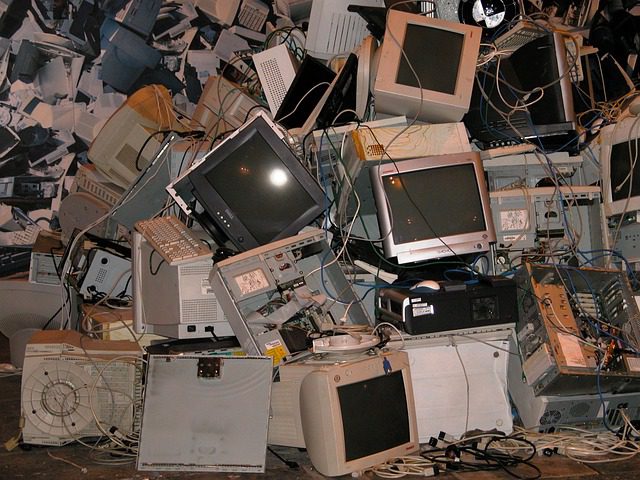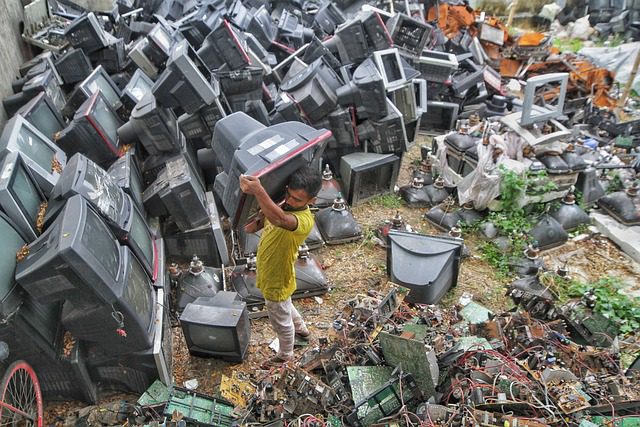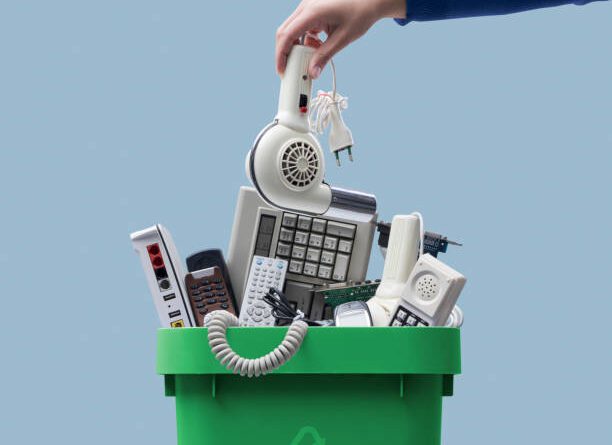The Best Practices for Electronic Equipment Disposal
There is need for proper electronic equipment disposal considering it’s associated risks if they are not being properly disposed of. Electronic waste, also known as e-waste, refers to discarded electrical and electronic devices that are no longer in use. This type of waste is becoming increasingly prevalent due to the rapid pace of technological innovation, as well as the increasing demand for electronic devices in everyday life.
The improper disposal of e-waste can pose significant environmental and health risks. Electronic devices often contain hazardous materials such as lead, mercury, cadmium, and brominated flame retardants, which can leach into the soil and water if not disposed of properly. Additionally, e-waste often ends up in landfills, where it can take hundreds of years to decompose and can release harmful chemicals into the air.
To address this issue, many countries have established regulations and programs to encourage the proper disposal and recycling of e-waste. These programs often involve partnerships between manufacturers, retailers, and waste management companies to ensure that e-waste is collected and recycled in a responsible manner.
In addition to environmental concerns, e-waste also poses security risks. Many electronic devices, such as smartphones and computers, contain sensitive information that can be accessed even after the device has been discarded. Proper disposal and recycling of e-waste can help to mitigate these risks and protect personal and sensitive information.
As consumers, there are several steps we can take to reduce our impact on e-waste. One simple step is to extend the lifespan of our electronic devices by properly maintaining and repairing them instead of immediately replacing them when they break or become outdated. Additionally, we can donate or sell our old devices to be reused by others instead of throwing them away.
E-waste is a complex and growing issue that requires action at all levels. Through responsible disposal and recycling practices, we can help to reduce the environmental and health risks associated with e-waste and promote a more sustainable future.
Best Practices for Electronic Equipment Disposal

As technology continues to evolve at a rapid pace, electronic devices disposal has become an increasingly pressing issue. With the average lifespan of electronic devices getting shorter and shorter, it is important for individuals and organizations to know how to dispose of these items properly. In this article, we will outline some best practices for electronic equipment disposal.
(1) Erase all data before disposal
Before disposing of any electronic device, it is essential to erase all data from it. This is especially important if the device contains sensitive or confidential information. Simply deleting files or formatting the device is not enough, as data can still be retrieved with specialized software. Use a data erasing tool or hire a professional to ensure that all data is completely erased.
(2) Consider donating or selling still functional equipment
If your electronic equipment is still in good working condition, consider donating or selling it rather than disposing of it. There are numerous charities and organizations that accept donations of electronics, and many people are willing to buy used equipment for a reduced price. This not only helps to reduce waste, but it also benefits those who may not have access to the latest technology.
(3) Look for electronic recycling programs
Many communities and businesses have electronic recycling programs that accept old or obsolete equipment for safe disposal. Check with your local government or recycling center to find out where you can drop off your electronic equipment. These programs often have strict guidelines on how to properly dispose of electronics to ensure they do not end up in landfills, where they can cause environmental harm.
(4) Follow proper disposal guidelines
If you cannot find a recycling program or if your equipment is too old or damaged to donate or sell, be sure to follow proper disposal guidelines. Do not throw electronics in the trash, as they can release toxic chemicals into the environment. Instead, find a specialized e-waste disposal service or take the equipment to a hazardous waste facility. These facilities are equipped to handle electronics safely and responsibly.
(5) Plan for electronic equipment disposal in advance
It is important to plan for electronic equipment disposal in advance. As you upgrade or replace your electronics, consider what you will do with the old equipment. Make a plan for how you will dispose of it, and follow through with that plan in a timely manner. This will help to reduce clutter and prevent old equipment from taking up space or becoming a hazard.
Electronic equipment disposal is an important issue that should not be overlooked. By following these best practices, you can ensure that your old electronics are disposed of in a safe, responsible manner. Whether you donate, recycle, or dispose of your electronics, you can feel good knowing that you are doing your part to protect the environment and keep your community clean and safe.
(6) Properly store electronic equipment until disposal
If you are not able to dispose of your electronic equipment immediately, it is important to store it properly until you are able to do so. Make sure to keep the equipment in a dry and secure place, away from any potential damage or environmental hazards. This will help to prevent any leaks or spills that could be harmful to both people and the environment.
(7) Consider refurbishing or repairing equipment
Another option to consider before disposing of electronic equipment is refurbishing or repairing it. If your device is not working as well as it used to, there may be simple repairs or upgrades that can extend its lifespan. Refurbishing or repairing equipment not only reduces waste, but it can also save you money in the long run.
(8) Remove batteries before disposal
When disposing of electronic equipment, it is important to remove any batteries beforehand. Many types of batteries can be hazardous when not disposed of properly, and can even explode or catch fire if not handled carefully. Make sure to remove any batteries and dispose of them separately, following the proper guidelines for battery disposal.
(9) Educate others on proper electronic equipment disposal
It is important to educate others on the importance of proper electronic equipment disposal. Spread the word to friends, family, and colleagues, and encourage them to follow these best practices as well. By working together, we can create a more sustainable and responsible approach to electronic equipment disposal.
There are many best practices for electronic equipment disposal that should be followed to ensure that these items are handled safely and responsibly. By erasing data, donating or selling still functional equipment, using electronic recycling programs, following proper disposal guidelines, planning for disposal in advance, storing equipment properly, refurbishing or repairing equipment, removing batteries, and educating others, we can all do our part to reduce waste and protect the environment.
(10) Consider reducing electronic waste through conscious consumption
One of the best ways to reduce electronic waste is to be more conscious about our consumption patterns. This means buying electronics that are built to last, rather than opting for cheaper and disposable options. It also means repairing and upgrading electronics when possible, rather than buying new ones every time a new model is released. By reducing our overall consumption of electronics, we can significantly reduce the amount of electronic waste that is generated.
(11) Support companies with sustainable practices
When purchasing new electronics, it is important to support companies that prioritize sustainability and responsible disposal practices. Look for companies that use recycled materials, have take-back programs, or have a clear plan for how they dispose of electronic waste. By supporting these companies, we can help to create a demand for more sustainable electronics and encourage others to follow suit.
(12) Lobby for better electronic waste policies
We can all make a difference by lobbying for better electronic waste policies at the local, state, and national level. This means advocating for regulations that require manufacturers to take responsibility for their products’ end-of-life disposal, rather than leaving it up to individuals and local governments. By working together to create better policies, we can help to create a more sustainable future for all.
There are many ways we can all work towards better electronic equipment disposal. By reducing our consumption, supporting sustainable companies, and advocating for better policies, we can all make a difference. As technology continues to evolve, it is more important than ever to be mindful of our impact on the environment and take steps to reduce our electronic waste.
Read Also: The Products Derived From Household Waste
Finding an Electronic Waste Drop-Off Near Me to Safely Dispose of Old Devices

As technology continues to advance, it becomes increasingly common for individuals and businesses to replace their electronic devices more frequently. While this may be exciting for those looking to upgrade to the latest technology, it also leads to a growing concern of electronic waste (e-waste) and its impact on the environment.
Improper disposal of electronic devices can result in harmful chemicals and materials seeping into soil and water, posing serious threats to both human and environmental health. Fortunately, many organizations and municipalities have recognized the importance of responsible e-waste disposal and have established programs for safe and convenient disposal of old electronic devices.
Finding an electronic waste drop-off near you can be a straightforward and responsible solution for disposing of old electronics. One effective way to find an e-waste drop-off location near you is to start by checking with your local government. Many cities and counties have programs or partnerships with local companies that specialize in e-waste management, and they can provide information on the location of drop-off sites, as well as the types of electronic devices accepted.
Another resource for finding e-waste drop-off locations is through electronic manufacturers or retailers. Many companies have established take-back programs, which allow customers to drop off their old devices at their stores for proper recycling or disposal. In some cases, they may even offer incentives or discounts for bringing in old devices, making it a win-win for both the customer and the environment.
Online resources can also be helpful in locating e-waste drop-off sites. A quick internet search using keywords such as “electronic waste drop-off near me” or “e-waste recycling center” can provide a list of nearby locations. Some websites even provide filters for specific types of devices or materials, making it easier to find the appropriate drop-off location for your needs.
Before dropping off your old devices, it’s important to prepare them properly. This typically involves wiping any personal data from the device and removing any batteries, which may need to be disposed of separately. It’s also important to check with the specific drop-off location for any additional guidelines or restrictions.
Read Also: Navigating the Profitable Path of Waste Management Stocks
Responsible e-waste disposal is essential for protecting both human health and the environment. Finding an electronic waste drop-off location near you can be a straightforward and effective way to ensure that your old devices are properly disposed of. By working together to responsibly manage e-waste, we can help minimize its impact on the environment and create a more sustainable future.
In addition to the environmental benefits of proper e-waste disposal, there may also be economic and social benefits. Many electronic devices contain valuable metals and materials that can be recovered and reused in new products, reducing the need for virgin materials and decreasing the environmental impact of resource extraction and manufacturing.
Proper e-waste disposal can also create jobs in the recycling and waste management industry, supporting local economies and communities. It’s worth noting that while electronic waste drop-off locations can be a great option for responsibly disposing of old devices, there are some limitations to this approach. For example, drop-off locations may not be available in all areas, or may only accept certain types of electronic devices.
Additionally, there may be transportation and logistical challenges associated with getting to the drop-off location, particularly for those who do not have access to a personal vehicle. Another option for e-waste disposal is to donate or resell old devices, particularly if they are still functional. This can help extend the life of the device and reduce the need for new products to be manufactured.
However, it’s important to keep in mind that donating or reselling electronic devices can also pose security risks if personal data is not properly wiped from the device. Ultimately, the most effective approach to responsible e-waste management may involve a combination of different strategies, depending on the specific situation and the available resources.
By being mindful of our consumption and disposal of electronic devices, we can all play a role in reducing the environmental impact of e-waste and promoting a more sustainable future.
Read Also: Why Octonauts Toys are the Best for Your Kids



